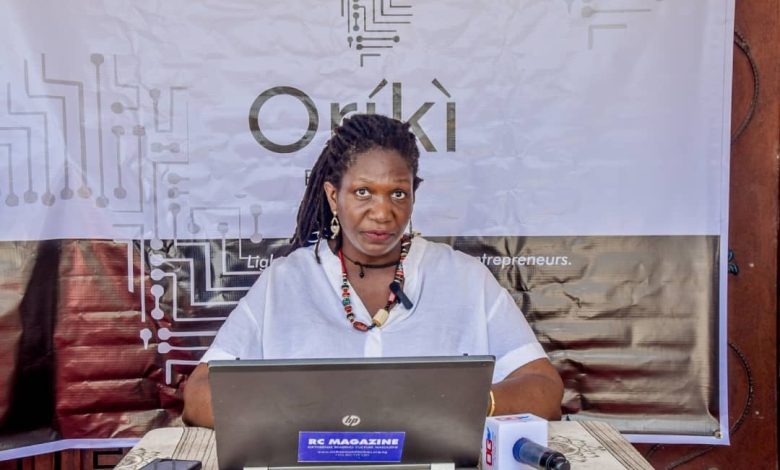Oriki Energy, a Paris-headquartered social enterprise, has announced a significant initiative to bolster Nigeria’s solar power sector. The company’s strategy involves establishing a network of solar stations that promise profitability and sustainability, aimed at invigorating local economies from the ground up.
Oriki Energy’s commitment is set to materialize in Abeokuta, Ogun State, where a diverse group of 100 entrepreneurs—equally split between men and women—will be equipped to launch their solar power ventures. This initiative, spanning from May to August 2024, is a business endeavour and a partnership with cultural roots involving the esteemed Olowu of Owu, Oba Prof. Saka Matemilola.
Seni Oyekanmi, the founder and CEO of Oriki Energy, is the driving force behind this ambitious project. With a vision to empower a million Nigerian entrepreneurs by 2034, Oyekanmi’s plan is more than a business model; it’s a transformative agenda for nationwide empowerment through renewable energy.
Read also: Three Nigerian students launch healthcare startup for elderly people
Oriki Energy’s sustainable start
The program kicked off on May 1st, as revealed by Funmi Kogbe, a representative of Oriki Energy, during a press briefing at the Olowu’s palace. Kogbe emphasized the company’s recognition of Nigeria’s entrepreneurial zeal and economic promise, viewing the nation’s landscape as fertile ground for innovation and impactful change.
By tapping into the vast potential of solar energy, Oriki Energy is not just providing a green alternative but is also enabling Nigerian entrepreneurs to flourish in profitable and life-enhancing businesses. This initiative is a testament to the company’s dedication to creating a brighter, self-sufficient future for Nigeria’s industrious population.
Specific benefits of solar power for entrepreneurs
By tapping into the vast potential of solar energy, Oriki Energy is providing a green alternative and enabling Nigerian entrepreneurs to flourish in profitable and life-enhancing businesses. This initiative is a testament to the company’s dedication to creating a brighter, self-sufficient future for Nigeria’s industrious population.
Oriki Energy’s solar initiative is more than just a business venture; it’s a beacon of hope for sustainable energy solutions, economic empowerment, and community development in Nigeria. As the program unfolds, Abeokuta entrepreneurs will harness the sun’s power to drive positive change and economic progress.
Oriki Energy’s business model
Oriki Energy’s business model revolves around empowering Nigerian entrepreneurs through solar energy. The company aims to establish a network of solar stations across Nigeria. These stations serve as hubs for solar power generation, distribution, and training. By strategically locating these stations, Oriki Energy ensures that solar power is accessible to local communities, businesses, and entrepreneurs.
The heart of Oriki Energy’s model lies in empowering entrepreneurs. They focus on equipping individuals with the knowledge, tools, and resources to start and run their solar power ventures.
Read also: Nigeria opens startup portal for tech innovators
Oriki Energy collaborates with cultural leaders and local authorities. For instance, their partnership with the Olowu of Owu, Oba Prof. Saka Matemilola, demonstrates a commitment to cultural integration and community engagement.
Oriki Energy recognizes Nigeria’s entrepreneurial zeal and views the nation as fertile ground for innovation. By tapping into the vast potential of solar energy, they offer a green alternative while enabling entrepreneurs to build profitable and impactful businesses.
Oriki Energy’s initiative is not just about solar panels; it’s about driving positive change and economic progress. Abeokuta entrepreneurs will harness the sun’s power to create self-sustaining businesses and contribute to their local economies.
Oriki Energy’s business model combines renewable energy, entrepreneurship, and cultural collaboration to create a brighter future for Nigeria. Their commitment goes beyond profit—empowering individuals and communities through sustainable practices.




